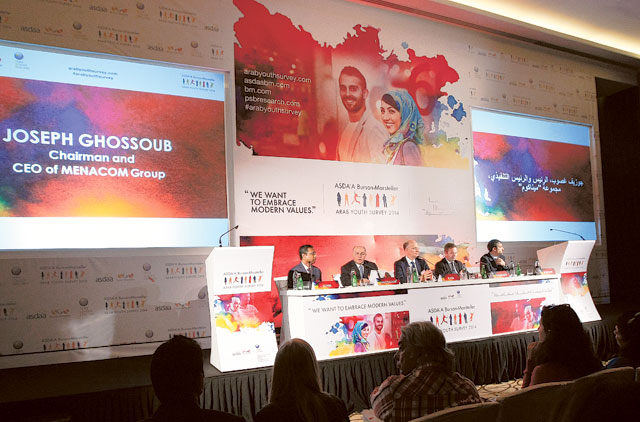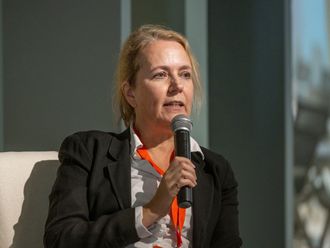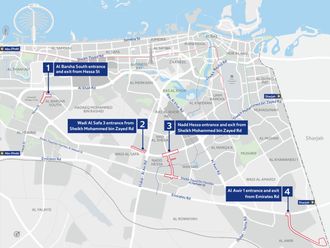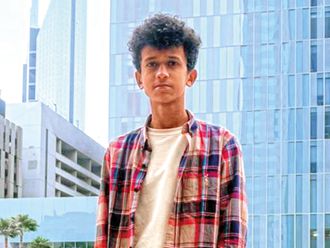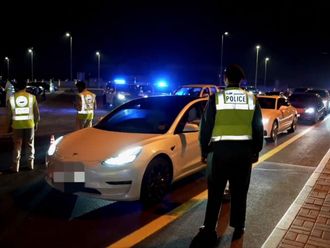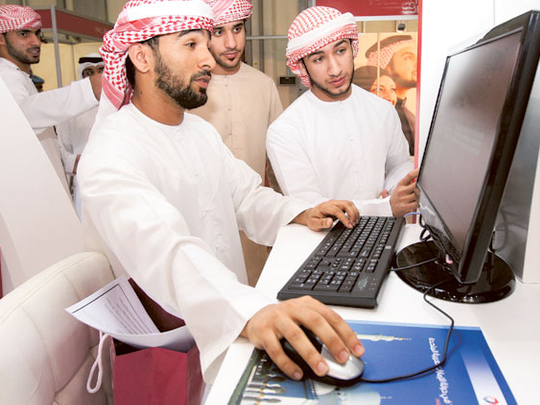
Dubai: For the third consecutive year, the UAE has been named as the country in which most Arab youth would like to live as well as the country they would most like their own nation to emulate.
The youth picked the UAE as their top choice out of an international list of 20 nations, trumping even the US, UK, France and Germany, according to the ASDA’A Burson-Marsteller Arab Youth Survey 2014.
His Highness Shaikh Mohammad Bin Rashid Al Maktoum, Vice-President and Prime Minister of the UAE and Ruler of Dubai, tweeted “The survey covering 16 Arab countries showed that UAE youth are the most optimistic. Positivity has become an integral part of our identity.”
Joseph Ghossoub, chairman and CEO of the Menacom Group, the regional parent company of ASDA’A Burson-Marsteller, said: “The vision and wisdom shown by the UAE’s leadership — with an emphasis on economic diversification, free market reform, technological innovation and investment in human capital — resonate around the world, and clearly continue to strike a chord with Arab youth.”
The UAE was ranked as the “happiest Arab country” and the 17th happiest in the world in the 2013 World Happiness Report, commissioned by the UN.
The 2014 Arab Youth Survey, commissioned by ASDA’A Burson-Marsteller and conducted by the international polling firm PSB, is the largest polling since the annual study began in 2008.
However, rising living costs and unemployment are the biggest worries for Arab youth, the new survey suggests.
This surpasses their concerns about the threat of terrorism. The findings were revealed on Monday in Dubai during a presentation on the survey, which interviewed thousands of Arab nationals.
The survey, which polled 3,500 men and women aged 18 to 24, said 63 per cent of respondents in the Gulf are “very concerned” by rising living costs.
Inflation is expected to climb higher as Gulf economies improve their financial health this year, it said.
Meanwhile, a growing population has left regional governments struggling to find enough public sector jobs for nationals, the survey added.
High expectations
Monday’s presentation heard that the youth are increasingly “living in the here and now” and have high expectations from their governments as “this is the economic issue for them.”
In the UAE, 83 per cent of Emiratis are “somewhat” to “very” concerned about rising living costs. And almost two-thirds feel the same about unemployment in the country.
On a regional level, more than half (55 per cent) of Arab youth believe the biggest obstacle facing the Middle East is civil unrest.
This is followed by a lack of democracy and the threat of terrorism.
A white paper on the findings said: “Outside of the GCC [Gulf Cooperation Council], much of the region continues to experience political turmoil as Syrian violence spills into neighbouring countries and Egypt grapples to contain the popular uprisings that have plagued the country since Hosni Mubarak was toppled in 2011.”
The survey, in its sixth year, had added a new category on the “Rise of the Muslim Brotherhood and Islamist movements” — and it featured in the top five obstacles with 28 per cent of respondents singling it out as the largest impediment.
This comes even as Arab youth’s “confidence in the long term impact of the Arab Spring is dropping.”
The countries included are the six Gulf Cooperation Council states (the UAE, Saudi Arabia, Qatar, Kuwait, Oman and Bahrain), Algeria, Iraq, Egypt, Jordan, Lebanon, Morocco, Tunisia, Libya and Yemen — with Palestine added for the first time this year.
Syria was left out because of the ongoing conflict there.
Each of the face-to-face interviews took 20-30 minutes, with men and women represented equally and chosen at random.
ASDA’A management declined to reveal the cost of the survey during the morning presentation, held at The Address Downtown Dubai hotel, but said it represented a “substantial investment.”
“The aim of this annual survey… is to present evidence-based insights into the attitudes of Arab youth, providing public and private sector organisations with data and analysis to inform their decision-making and policy formation,” ASDA’A said in a statement.


